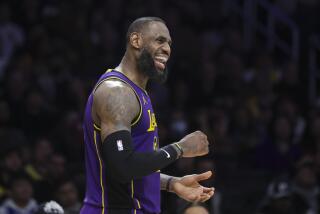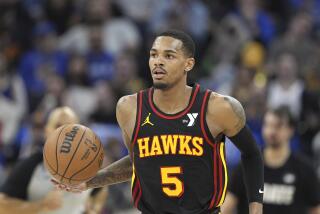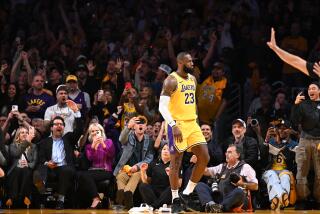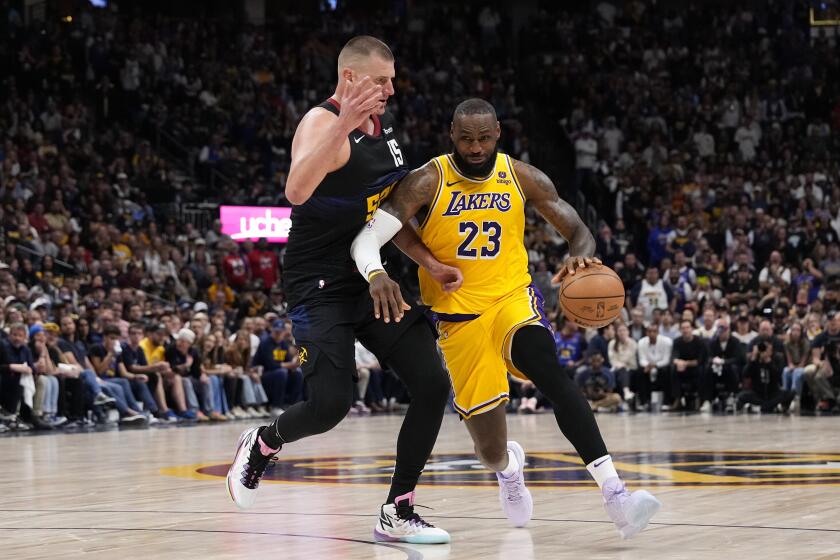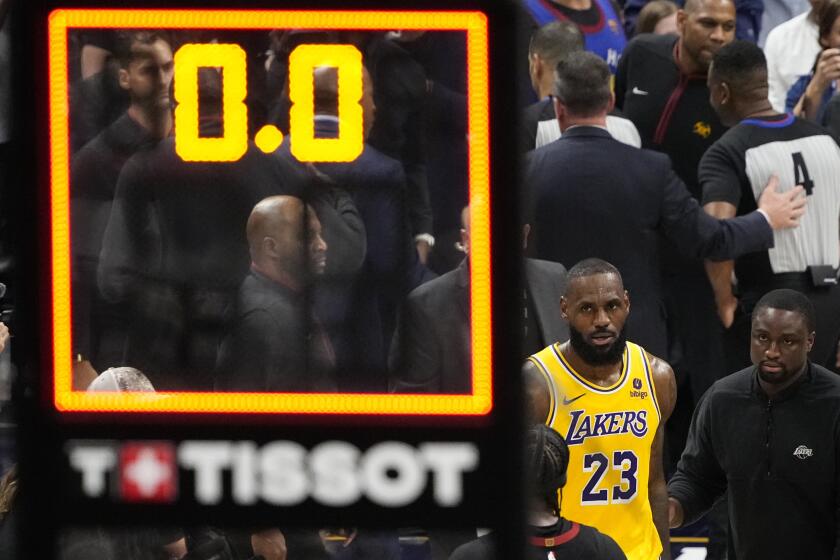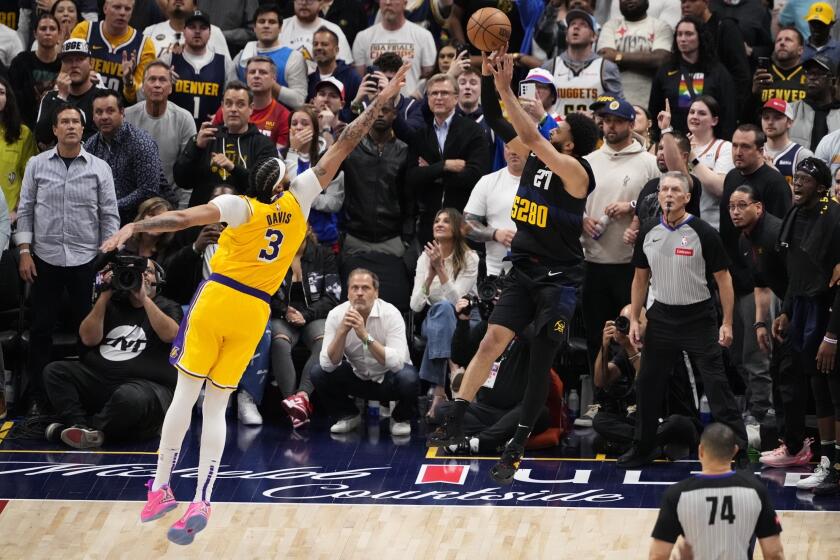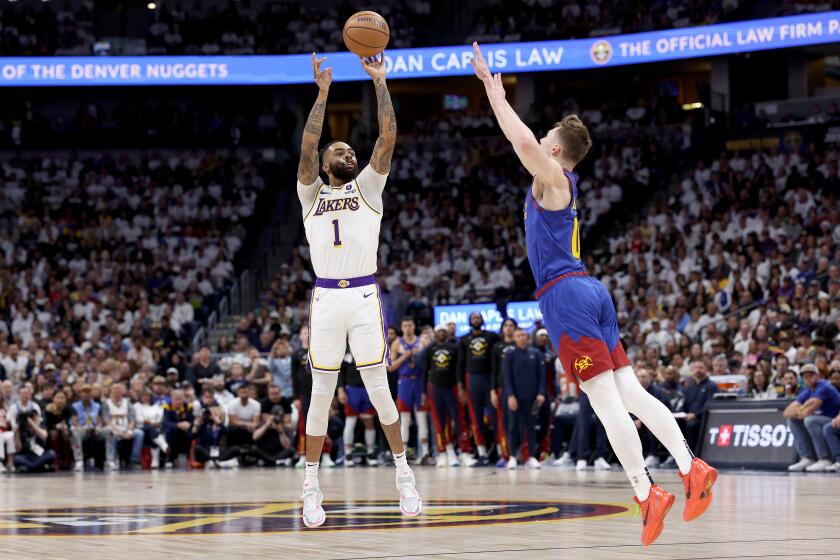Trade restrictions lifted for some Lakers
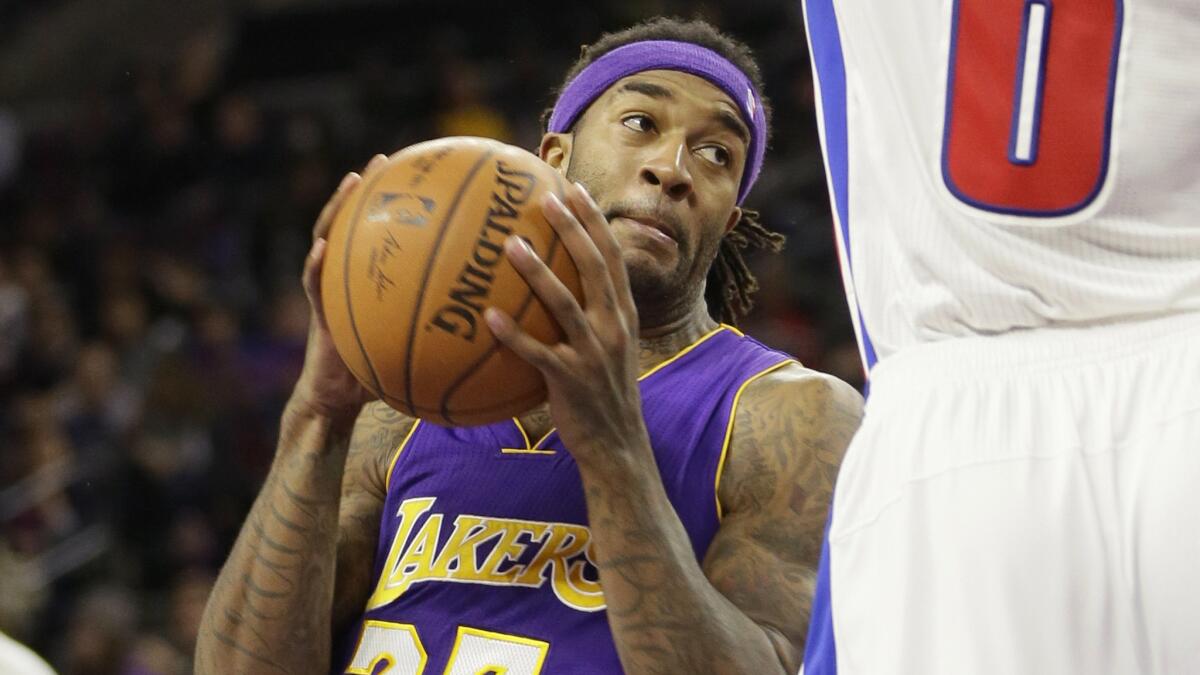
It’s unclear if the Lakers will be willing to make any significant moves this season, but as of Dec. 15, a number of Lakers became trade eligible.
Nick Young, Ed Davis, Wesley Johnson, Ryan Kelly and Xavier Henry, who signed contracts over the summer, can now be traded by the Lakers.
Young agreed to a four-year, $21-million contract with a player option on the final season. Davis and Johnson are on minimum contracts, although Davis has an option to play a second season, also at the minimum.
Kelly ($1.7 million) and Henry (1.1 million) were both signed via the team’s room exception. Kelly has a fully guaranteed second season, while Henry, who is out for the season with a ruptured Achilles’ tendon, is on a one-year deal.
Players signed over the summer cannot be traded until Dec. 15 or 90 days, whichever is later. Wayne Ellington (Dec. 22) and Ronnie Price (Dec. 24), who both signed partially guaranteed one-year minimum deals, cannot be traded for at least another week.
The rules are different for draft picks. Julius Randle and Jordan Clarkson had a 30-day trade restriction over the summer that has long-since passed.
Jordan Hill, who signed a two-year, $18-million contract over the summer, cannot be traded until Jan. 15. In Hill’s case, he received a raise greater than 20%, triggering the longer trade restriction, which applies only to players signed while their team is over the NBA’s $63.1-million salary cap.
Young also received a similar raise, but he was re-signed while the Lakers were under the cap. The second season on Hill’s contract is a team option.
The Lakers cannot trade veteran Carlos Boozer, because he was acquired via amnesty waivers after the Chicago Bulls used their one-time provision to remove his $16.8-million salary from their books. The Lakers are paying $3.3 million to Boozer, reducing Chicago’s obligation to $13.6 million, although that figure doesn’t count against the Bulls’ salary cap.
Enough time has passed, since Kobe Bryant signed his two-year, $48.5 million contract extension, for the Lakers to trade him, but the All-Star guard is also in possession of a no-trade clause.
------------
FOR THE RECORD
Dec. 18, 2:10 p.m.: An earlier version of this post incorrectly stated that Bryant could not be traded until the end of this season.
------------
Jeremy Lin, Robert Sacre and Steve Nash have no trade restrictions during the regular season.
Nash has a 15% trade bonus in his contract, which applies only to the remainder of his contract for the season. If he were traded at the exact midway point of the season, the bonus would be based on half of his $9.7-million salary, or $727,575.
Because Hill, Henry and Johnson re-signed on one-year deals, they can block any trade the Lakers might choose to make. The Lakers can technically get around Hill’s veto power by opting him in to the second season of his contract, also at $9 million.
The Lakers also have two disabled player exceptions, which can be used to acquire players in the final year of their contracts, one for Nash ($4.9 million) and Randle ($1.5 million). Nash is out with back issues while Randle broke his leg in the first game of the season.
The NBA trade deadline is Feb. 20. The Lakers have prioritized cap flexibility for the summer of 2015. To make a trade, the team presumably would want players in the final year of their contracts, unless they’re able to acquire a player they’d gladly use their cap space on next summer.
Email Eric Pincus at eric.pincus@gmail.com and follow him on Twitter @EricPincus.
More to Read
All things Lakers, all the time.
Get all the Lakers news you need in Dan Woike's weekly newsletter.
You may occasionally receive promotional content from the Los Angeles Times.
